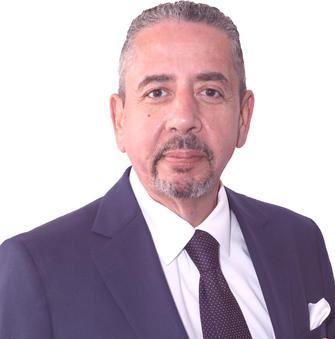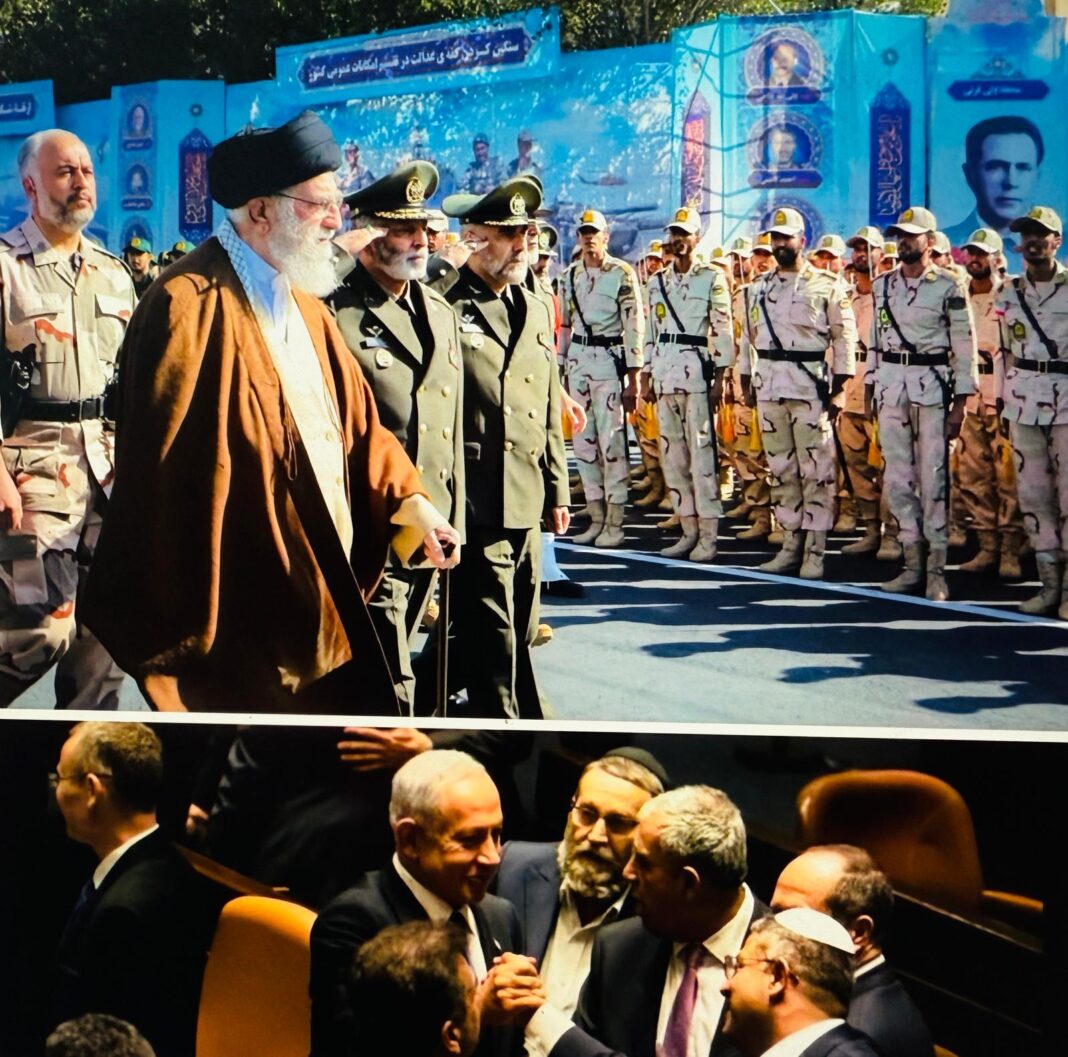By Ahmed Fathi
New York (ATN) – The latest exchange of fire between Israel and Iran has once again dragged the Middle East to the precipice of regional war. Headlines have mostly featured air raid sirens, missile strikes, and retaliatory drone swarms. But the true narrative—the one too often overlooked in the immediacy of conflict—is not about military strategies or diplomatic errors. It is about two states with systems of governance designed for escalation.

This is not a war of misunderstanding or miscalculation. It is a war manufactured—politically, ideologically, and structurally—by two regimes ruled not by moderates or diplomats, but by two powerful blocs: Theocrats and Securocrats.
Iran’s Twin Power Centers: God and the Gun
In Iran, power is split—but not balanced—between divine authority and military dominance. Supreme Leader Ayatollah Ali Khamenei supplies the religious mandate, while the Islamic Revolutionary Guard Corps (IRGC) enforces it with operational muscle and economic control. The IRGC is no ordinary military institution—it is an empire within a state, with stakes in everything from oil exports to tech surveillance.
Iran’s military response goes beyond simple reprisal. It is underlining a system of government that justifies internal persecution by means of outside threats. The IRGC lives on crises: war justifies crackdowns; sanctions justify self-reliance; isolation justifies ideological purity.
Theocrats fuel this machine by framing every confrontation with Israel or the West as divine resistance. And as long as these narratives hold, any internal dissent can be conveniently labeled treasonous or heretical.
Israel’s Far-Right Securocrats
Israel is undergoing its own institutional drift. Prime Minister Benjamin Netanyahu’s current coalition includes ultra-nationalists and religious hardliners who see confrontation with Iran not just as policy, but as destiny.
Israeli securocrats—Mossad, the IDF, and elite cyber units—have long shaped military strategy, but today they increasingly drive foreign policy itself. Their playbook is simple: deterrence through dominance. Preemptive strikes are not warnings—they’re declarations of permanence in a volatile neighborhood.
But this isn’t just about military tactics. For Netanyahu’s political survival, Iran serves as a unifying external threat to distract from domestic divisions, legal troubles, and democratic backsliding. Escalation is not a bug in the system—it’s a feature.
Structural Escalation, Not Strategic Miscalculation
What we’re witnessing is not a classic security dilemma. It’s a governance dilemma.
In both Tehran and Jerusalem, conflict sustains legitimacy. Theocrats invoke existential threats to suppress dissent and consolidate authority. Securocrats push for militarization, claiming it is the only rational response to an irrational enemy. In both cases, war—or the threat of it—becomes a tool of statecraft, not its failure.
Each side benefits from keeping the other on high alert. This isn’t accidental—it’s structural. Neither system rewards de-escalation. On the contrary, calm is dangerous. It raises questions. It invites reform. It threatens the power equilibrium.
Why Washington Must Rethink Its Entire Playbook
For decades, U.S. policy toward Iran and Israel has relied on a mechanical formula: sanction Iran, arm Israel, contain the fallout. But that formula has expired. It was never designed to address the internal mechanics of power that feed perpetual conflict.
The U.S. and its European allies need to stop treating missiles and centrifuges as the disease. They are the symptoms.
A serious long-term strategy must:
• Target the political economy of conflict: pressure institutions that profit from militarism, not just those that launch it.
• Invest in civil society: empower voices that challenge siege narratives, from Iranian women’s rights activists to Israeli human rights defenders.
• Reframe diplomacy: focus not just on deals, but on the domestic structures that make peace politically unviable.
Conclusion: The Logic of War Must Be Broken
Until international actors pivot from containment to structural engagement, the cycle will repeat—and worsen. Today’s missile exchanges are not anomalies. They are the logical result of regimes designed to thrive under threat, not resolve it.
To break the pattern, it is not enough to call for restraint. The very logic of escalation must be delegitimized. Theocrats and securocrats will not choose peace unless the cost of war becomes greater than the power they derive from it.
That means policymakers must stop asking: How do we stop the next strike? and start asking: Who benefits from this endless state of siege—and how do we make it stop serving them? systems designed to survive—not through peace, but through perpetual crisis.
INPS Japan/ American Television Network
Original URL: https://www.amerinews.tv/posts/theocrats-securocrats-iran-israel-escalation


